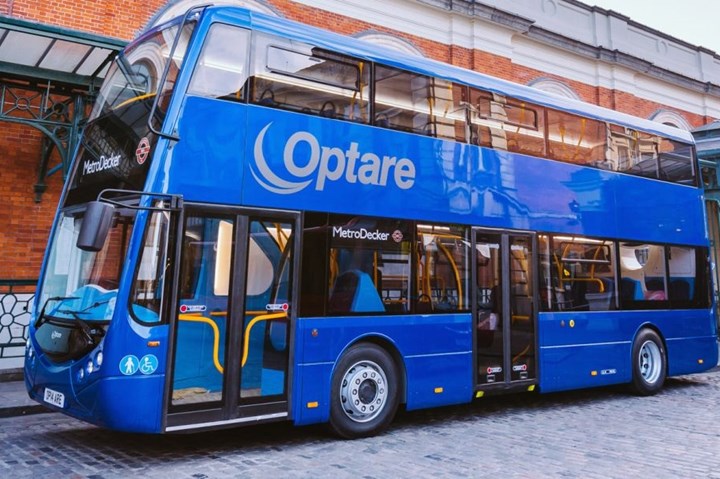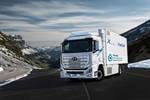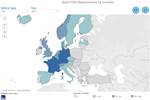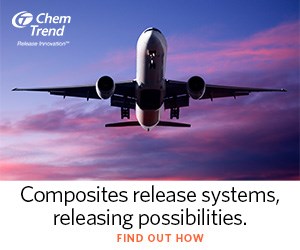Permali partnership project develops composite structure for hydrogen-powered buses
Low-cost, lightweight composite system for structural support of hydrogen fuel cylinders aims to halve the weight of current metallic hydrogen tanks and increase energy storage by 25%.

The Metrodecker H2 incorporates a hydrogen fuel cell powerpack developed by Arcola Energy. It can carry more than 90 passengers with a range of between 200 and 250 miles depending on specification and route. Photo Credit: Permali
Permali (Gloucester, U.K.) reported on Oct. 26 that it has won U.K. Government funding to develop a lightweight composite solution that will allow existing diesel-powered buses to be retrofitted with zero-emission hydrogen powertrains. The objective, says Permali, is to rapidly develop an affordable green technology alternative that can accelerate the ability for the U.K. to meet its net zero emissions target. The project is initially aimed at buses Permali notes, but the new technology concept should be transferable to a wider range of vehicles, such as heavy-duty goods vehicles, trains and even aircraft.
The funding has been awarded by the Office for Low Emission Vehicles (OLEV) through the Niche Vehicle Network (NVN). According to the company, Permali’s R&D team, located at the company’s main site in Gloucester, will be working on this development project in collaboration with the UK National Composites Centre (NCC, Bristol, U.K.) which Permali will help design and manufacture the proof of concept system, and hydrogen and fuel cell specialist company Arcola Energy (Dalston, London) which will integrate and test the system with the hydrogen cylinders to achieve regulatory compliance and fit the new system to a double-decker bus.
The project focus for Permali will be on the development and production of a low-cost, lightweight composite system which will structurally support the hydrogen fuel cylinders. The target for the Permali development team is to halve the weight of the current metallic hydrogen fuel tank structure and to increase energy storage by 25%, while still providing the required structural performance to meet the vehicle road safety standards.
According to Permali, in addition to a highly efficient, zero-emission alternative to diesel, hydrogen power has several benefits, including its suitability for buses which operate on long-distance, high-capacity routes. By retrofitting existing diesel engine buses with hydrogen powertrains, the company adds, bus operators will be able to cost-effectively run zero- emission fleets, with a combination of retrofitted hydrogen powered buses for longer routes alongside electric battery powered buses for shorter routes.
Related Content
-
The state of recycled carbon fiber
As the need for carbon fiber rises, can recycling fill the gap?
-
Troubleshooting thermal design of composite battery enclosures
Materials, electrical insulation and certification are all important factors to consider when optimizing electric battery performance against potential thermal runaway.
-
Cryo-compressed hydrogen, the best solution for storage and refueling stations?
Cryomotive’s CRYOGAS solution claims the highest storage density, lowest refueling cost and widest operating range without H2 losses while using one-fifth the carbon fiber required in compressed gas tanks.









.jpg;maxWidth=300;quality=90)



